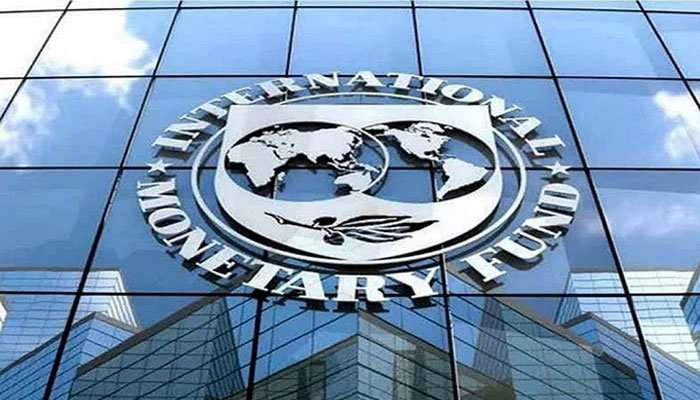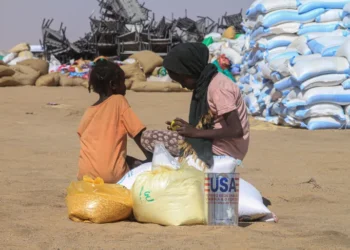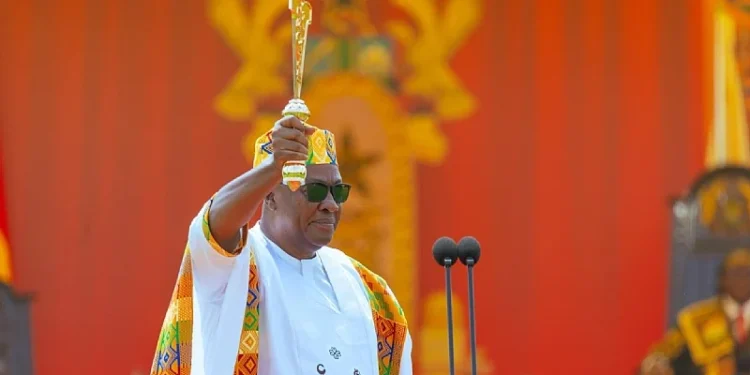The International Monetary Fund (IMF) has lowered its growth projections for the global economy to 4.4 percent this year from the 4.9 percent projected earlier.
The downgrade of the global economy in 2022 is mostly due to recent developments in the two largest economies, the US and China.
“Global growth is expected to moderate from 5.9 in 2021 to 4.4 percent in 2022—half a percentage point lower for 2022 than in the October World Economic Outlook (WEO), largely reflecting forecast markdowns in the two largest economies.
“Global growth is expected to slow to 3.8 percent in 2023. Although this is 0.2 percentage point higher than in the previous forecast, the upgrade largely reflects a mechanical pickup after current drags on growth dissipate in the second half of 2022. The forecast is conditional on adverse health outcomes declining to low levels in most countries by end-2022, assuming vaccination rates improve worldwide and therapies become more effective”.
IMF
The IMF stated in its January 2022 WEO that the removal of the Build Back Better fiscal policy package from the baseline, earlier withdrawal of monetary accommodation, and continued supply shortages produced a downward 1.2 percentage-points revision for the United States.
In China, pandemic-induced disruptions related to the zero-tolerance COVID-19 policy and protracted financial stress among property developers have induced a 0.8 percentage-point downgrade, the IMF stated.
Inflationary expectations
On inflation, the IMF stated that elevated inflation is expected to persist for longer than envisioned in the October WEO, with ongoing supply chain disruptions and high energy prices continuing in 2022. Assuming inflation expectations stay well anchored, inflation should gradually decrease as supply-demand imbalances wane in 2022 and monetary policy in major economies respond.
The new report highlighted that risks to the global baseline are tilted to the downside. According to the IMF, the emergence of new COVID-19 variants could prolong the pandemic and induce renewed economic disruptions.
Moreover, supply chain disruptions, energy price volatility, and localized wage pressures mean uncertainty around inflation and policy paths is high. The IMF warned that as advanced economies lift policy rates, risks to financial stability and emerging market and developing economies’ capital flows, currencies, and fiscal positions—especially with debt levels having increased significantly in the past two years—may emerge.
The Fund indicated that other global risks may crystallize as geopolitical tensions remain high, and the ongoing climate emergency means that the probability of major natural disasters remains elevated.
Need to increase vaccine production
With the pandemic continuing to maintain its grip, the emphasis on an effective global health strategy is more salient than ever. The IMF indicated that worldwide access to vaccines, tests, and treatments is essential to reduce the risk of further dangerous COVID-19 variants.
This requires increased production of supplies, as well as better in-country delivery systems and fairer international distribution. The IMF recommended that monetary policy in many countries will need to continue on a tightening path to curb inflation pressures, while fiscal policy—operating with more limited space than earlier in the pandemic—will need to prioritize health and social spending while focusing support on the worst affected.
In this context, the Fund noted that international cooperation will be essential to preserve access to liquidity and expedite orderly debt restructurings where needed. Investing in climate policies remains imperative to reduce the risk of catastrophic climate change.
According to the IMF, the global economy enters 2022 in a weaker position than previously expected. As the new Omicron COVID-19 variant spreads, countries have re-imposed mobility restrictions.
Rising energy prices and supply disruptions have resulted in higher and more broad-based inflation than anticipated, notably in the United States and many emerging market and developing economies. The ongoing retrenchment of China’s real estate sector and slower-than-expected recovery of private consumption also have limited growth prospects, the Fund stated.
READ ALSO: Engagement With Investors Impacting Market Positively – Charles Adu Boahen






















